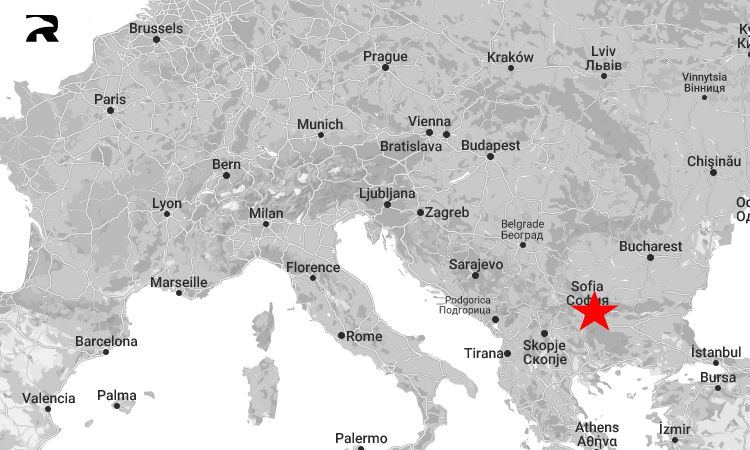Human trafficking is a pressing global issue that continues to plague societies worldwide. In this in-depth analysis, we turn our attention to Bulgaria, a country situated in Southeast Europe that has become a hotspot for human trafficking activities. Despite efforts by the Bulgarian government and international organizations to combat this heinous crime, the persistent presence of human trafficking networks demands a thorough investigation.
Bulgaria, as a transit and source country for human trafficking, faces unique challenges due to its geographical location and socio-economic conditions. Located at the crossroads of Europe, it serves as a gateway for traffickers exploiting vulnerable individuals from neighboring countries, such as Moldova, Ukraine, and Romania. Additionally, Bulgaria’s high poverty rate, limited employment opportunities, and a weak social welfare system create an environment that traffickers exploit to coerce individuals into forced labor, sexual exploitation, and other forms of modern-day slavery.
Complex Dynamics of Human Trafficking Networks
Human trafficking networks in Bulgaria operate through a complex web of criminal organizations, corrupt officials, and complicit individuals. These networks use sophisticated tactics to recruit, transport, and exploit victims, making it challenging for law enforcement agencies to dismantle them. Traffickers often target individuals with limited education, financial resources, or social support networks, exploiting their vulnerabilities and manipulating their circumstances for personal gain.
The recruitment process commonly involves deceit, false promises, and coercion. Vulnerable individuals are enticed with offers of better job opportunities, education, or a chance at a brighter future abroad. Once under the control of traffickers, victims are subjected to physical and psychological abuse, threats against their families, and debt bondage, making escape nearly impossible. In many cases, victims are transported across borders, using hidden routes and forged documents, further complicating the task of law enforcement agencies.
Impact of Human Trafficking on Victims and Society
The consequences of human trafficking are devastating for both the victims and society as a whole. Victims often endure physical and emotional trauma, leading to long-term psychological damage. The effects of trafficking can include post-traumatic stress disorder (PTSD), anxiety, depression, and a sense of isolation. Many victims face significant barriers when attempting to reintegrate into society, such as stigmatization, lack of support services, and limited economic opportunities.
Moreover, human trafficking has wide-ranging social and economic implications. It perpetuates inequality, undermines human rights, and erodes social cohesion. The presence of thriving trafficking networks tarnishes Bulgaria’s reputation, deterring foreign investment and damaging its tourism industry. Additionally, the loss of human capital through forced labor deprives the country of productive potential, hindering its overall development and exacerbating poverty levels.
Challenges and Responses to Combat Human Trafficking
Addressing the issue of human trafficking requires a multi-faceted approach that encompasses legislative measures, law enforcement efforts, victim support, and international cooperation. Bulgaria has taken steps to combat human trafficking by enacting legislation and establishing specialized anti-trafficking units within law enforcement agencies. However, challenges persist due to corruption, limited resources, and the ever-evolving tactics of traffickers.
To enhance the effectiveness of anti-trafficking measures, it is crucial to strengthen international cooperation between countries of origin, transit, and destination. This involves information sharing, joint investigations, and extradition agreements. Additionally, providing comprehensive support services to survivors, including medical care, legal aid, and psychosocial support, is essential for their recovery and reintegration.
The Way Forward: A Call to Action
To eradicate human trafficking in Bulgaria, a comprehensive and sustained effort is required. This involves addressing the root causes, such as poverty, unemployment, and social inequality, through targeted economic and social policies. Strengthening educational systems and promoting awareness campaigns that educate individuals about the dangers of trafficking are vital preventive measures.
The government must allocate adequate resources to law enforcement agencies and ensure their transparency and accountability. This includes improving training for law enforcement officials, establishing specialized units, and implementing stricter penalties for traffickers. Additionally, fostering collaboration between civil society organizations, government agencies, and international partners can bolster efforts to combat human trafficking.
The battle against human trafficking in Bulgaria is an arduous one, as the country grapples with a range of socio-economic challenges. However, by implementing a comprehensive and collaborative approach, involving legislative reforms, law enforcement efforts, victim support, and international cooperation, Bulgaria can make significant strides towards eradicating this modern-day form of slavery and restoring dignity and hope to those affected by human trafficking.


